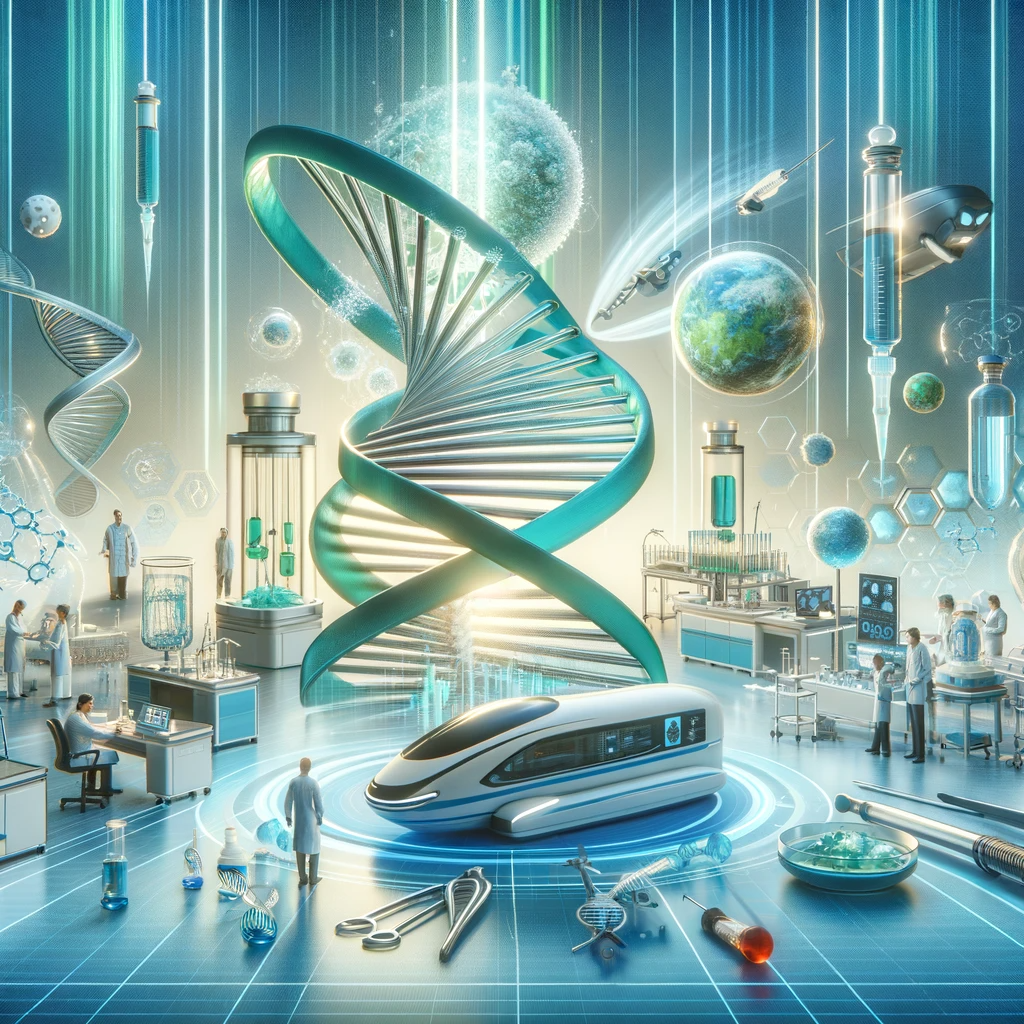In the realm of healthcare, we stand at the cusp of a revolution, one powered by the incredible advances in biotechnology. This field, a blend of biology, technology, and computer science, is reshaping how we understand, diagnose, and treat diseases. This comprehensive exploration will delve into how biotechnology is transforming healthcare, offering new hopes and possibilities.
The Dawn of a New Era in Medicine
Biotechnology in healthcare isn’t just a new set of tools; it’s a fundamentally different approach to medicine. It’s about understanding the molecular underpinnings of diseases, personalizing treatments, and even preventing illnesses before they manifest.
Personalized Medicine: Tailored Treatments for Individuals
One of the most significant contributions of biotechnology is the development of personalized medicine. By understanding an individual’s genetic makeup, medical professionals can tailor treatments and medications to work more effectively for each person. This approach minimizes side effects and enhances treatment outcomes.
Gene Therapy: Correcting Diseases at Their Source
Gene therapy, once a concept from science fiction, is now a reality. By repairing or replacing faulty genes, this technology offers potential cures for genetic disorders, some cancers, and viral infections. It’s a groundbreaking shift from treating symptoms to fixing the cause.
CRISPR: The Cutting Edge of Genetic Editing
CRISPR technology has revolutionized genetic engineering. This precise method of editing DNA has vast implications, from treating hereditary diseases to improving food crop resilience. Its potential in healthcare is immense, offering hope for curing previously untreatable conditions.
The Rise of Biopharmaceuticals
Biopharmaceuticals, medicines produced using biotechnology, are transforming treatments. Unlike traditional drugs, biopharmaceuticals target specific cellular pathways, offering more effective disease management with fewer side effects. They’re particularly revolutionary in treating complex conditions like rheumatoid arthritis and multiple sclerosis.
Stem Cell Research: Unleashing Regenerative Potential
Stem cells have the unique ability to develop into many different cell types, offering potential in regenerating damaged tissues and organs. This area of biotechnology holds promise for treating degenerative diseases, spinal cord injuries, and even in growing organs for transplantation.
The Impact of Biotech in Diagnostics
Biotechnology has drastically improved diagnostic tools, allowing for earlier and more accurate disease detection. Techniques like PCR (Polymerase Chain Reaction) and advanced imaging technologies have enabled the early detection of diseases like cancer, significantly improving treatment success rates.
Combating Antibiotic Resistance
Biotechnology is at the forefront of addressing antibiotic resistance, one of the biggest threats to global health. By developing new antibiotics and alternative therapies, biotech is essential in this fight.
Biotech in Pandemic Response and Vaccination
The rapid development of COVID-19 vaccines highlighted the role of biotechnology in pandemic response. Technologies like mRNA vaccines have set a new standard for vaccine development speed and efficacy, offering a template for combating future pandemics.
The Role of Artificial Intelligence and Big Data
AI and big data are integral to biotechnology’s future in healthcare. They enable the analysis of vast amounts of genetic data, leading to faster drug development, better understanding of disease mechanisms, and personalized treatment plans based on a patient’s genetic profile.
Ethical and Social Implications
While biotechnology offers incredible opportunities, it also raises ethical questions. Issues around gene editing, stem cell research, and data privacy need careful consideration and robust ethical guidelines to ensure the technology benefits humanity without compromising moral values.
The Economic and Accessibility Challenges
Biotechnology’s advancements, while promising, come with high costs. Making these technologies affordable and accessible to all remains a significant challenge. Addressing this will require innovative funding models, policy changes, and global cooperation.
The Future of Global Health
Biotechnology has the potential to reshape global health, particularly in low-resource settings. By developing more effective vaccines, rapid diagnostics, and treatments for tropical diseases, biotech can play a pivotal role in improving health outcomes worldwide.
Education and the Biotech Workforce
The biotech revolution also impacts education and workforce development. There’s a growing need for professionals trained in bioinformatics, genetic counseling, and other specialized fields. This presents an opportunity for educational institutions to prepare a new generation for these exciting and challenging careers.
A Future Defined by Hope and Innovation
Biotechnology in healthcare is more than just a collection of technologies; it’s a beacon of hope for millions. It offers solutions to some of the most challenging medical conditions and opens doors to new ways of understanding life at its most fundamental level.
As we navigate this biotech revolution, we must do so with caution, optimism, and a commitment to ensuring these advancements benefit humanity as a whole. The future of healthcare is bright, and it is powered by the relentless pursuit of knowledge and innovation in biotechnology. 🧬💉🔬
